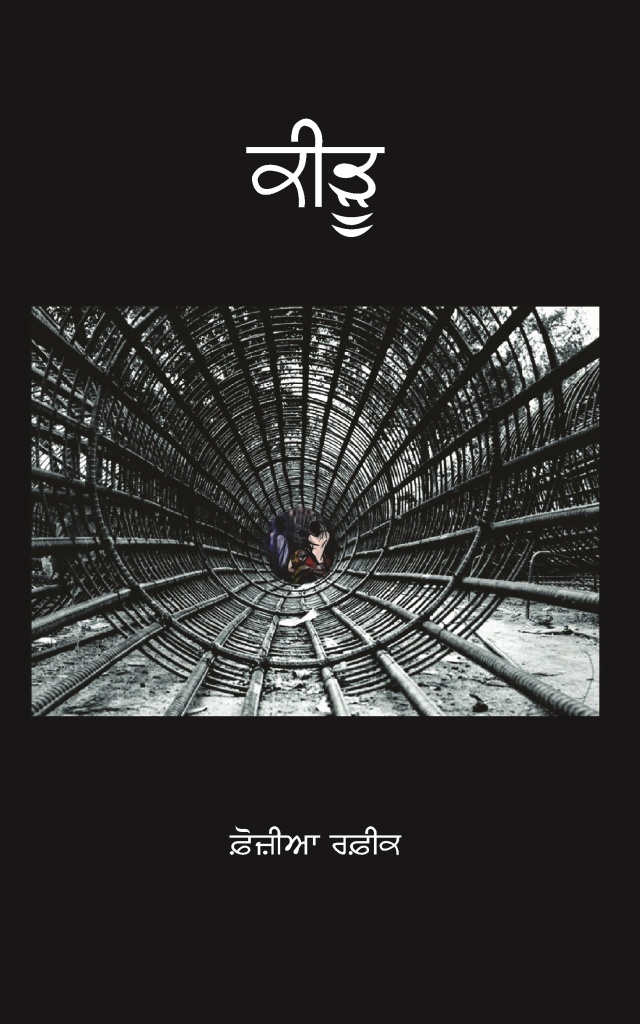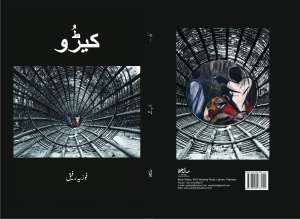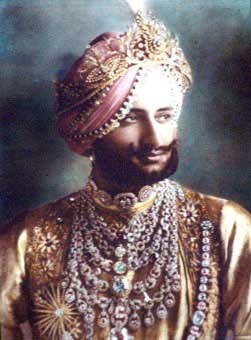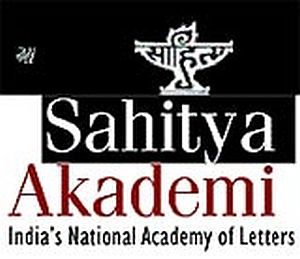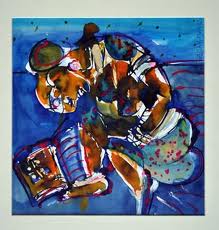Translated from Punjabi
Keerru : Punjabi novel
Novelist : Fauzia Rafique
Review : Rashid Javed Ahmed
It was by mere chance that I got to read this unique Punjabi novelette, thanks to Author Ayesha Aslam. Before this I had read Fauzia Rafique Jee’s poetry and I had published her Urdu poem ‘Zindagi thee / it was life’ in my magazine. I knew Fauzia Rafique Jee with reference to her work with Pakistan television Lahore where in better times my Punjabi and Urdu plays were also presented. I came to know of her earlier novel ‘Skeena’, and I have made a request to Sanjh Publication’s Amjad Saleem Minhas, Skeena’s publisher, for a copy. I will definitely read it if I get it.
Keerru is the story of Mohammad Hussain Keerru who is accused of blasphemy, he first escapes to Karachi from Lahore and then leaves for Canada. In Canada, he sees many colors of life and he adapts. Keerru’s mother arrives from Pakistan. She tells her story from the 1947 partition of the Punjab, what happened to her then, and how being a Christian she had to live in a Muslim cultural environment. She brings the novel to the next level by relating her story and talking about her marriage with Keerru’s father.
In this novella every character tells us about their life themselves, and in this way Fauzia Rafique Jee has presented this story in a beautiful manner. There are five characters in the novelette: Keerru, Haleema, Naila, Isabella and Daljit. The story revolves around these people who have come out of their own countries to settle in Canada. The story of these characters creates a naked image of the class injustices and societal contradictions rampant in the Indian Subcontinent.
Haleema is the main character of this novelette, and her full name is Haleema Alice Bibi. Working as a servant in rich people’s homes, poor family’s daughter Haleema who never got the opportunity to go to school, is actually the most aware character of all. Haleema is a woman belonging to the lowest tier of her society and despite facing the various difficulties that life had subjected her to, and in spite of all the pain, hardship and sorrow, she still is able to have a sane mind. She is a personification of the highest values of humanity. Through Haleema’s character, Fauzia Jee has weaved all kinds of exploitation and injustice- whether religious or societal- so artfully that it has become its class identity. This is such a character created by the novelist that becomes the precursor for the whole body of thought behind the novella. Haleema and other people like her, die working day and night physically and mentally trying to sustain the systems of their lives. In this society, some people, some very few people try to support them but even they keep them out of their class. Living like insects, they believe that this is their fate and to change it or to come out of it is not in their power.
The second big character of the novelette is Haleema’s son Keerru. Saving his life from religious extremists, somehow, he arrives in Canada, and after working menial jobs for many years, he becomes the owner of a garments company. He has brought his mother over too who now lives with him and she takes good care of him and his friends. People often ask her the reasons why she named her son ‘keerru’, but to hear her answer, you’ll have to read the novelette because what will be the benefit in writing everything here. But I will definitely say one thing that Keerru’s character is a strange character who hates the reality of his inner self, there can’t be a bigger torture than this. I believe the name Keerru is given to him not by Haleema but by Fauzia Rafique herself, and what an amazing choice. Other than praising the beauty of the Punjabi language used, much admiration for using this name.
I will not talk about the rest of the characters because that would mean revealing most of the story, neither am I giving any ‘basic theme’ but the characters Fauzia Rafiq jee has created are full of life and they have distinct characteristics of their own. Through these characters, the readers come to know of the pain of exploitation of women and then the description of a charater’s rebellion as a way to come out of it. Repression of women has many forms and one of those is coercion and violence from man or husband, and many writers have spoken about it in their writings but what is a plus point with Fauzia Jee is that she did not make it into a slogan but through the story she has shown that the strength to be free of repression is also within women’s selves. Similarly, you will see the tall walls of social apartheid and casteism in the novelette.
I am not a critic but a reader of Punjabi and Urdu literature, and I have much appreciation for Fauzia Jee’s characterization. Five characters tell their stories in the language of ordinary people, sometimes they go in their pasts, then return to the present but the continuity of the story is never broken. The environment is described so well that the reader feels himself to be present there and everything passes in front of his eyes like a film.
About Keerru and Daljit’s relationship, Fauzia Jee has mentioned Shah Hussain and Madhu Lal, Bulleh Shah and Shah Inayat. Some people may object to it but I am in agreement with Fauzia Jee on this pointer.
I am very happy to have read Fauzia Jee’s novelette.
Read Punjabi original at Penslips Magazine
..

